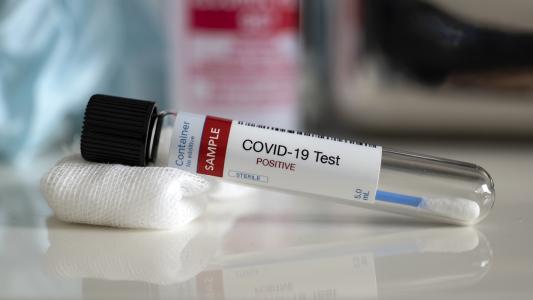While men and women appear equally susceptible to a coronavirus infection, men seem far more vulnerable to severe cases of the disease — some hospitals have reported twice as many deaths amongst male patients as female ones.
Now, scientists have a new hypothesis to explain the particularly deadly impact of the coronavirus in men: they have higher concentrations of a blood enzyme that aids infection.
Explaining the Coronavirus in Men
The enzyme at the center of this new study is called ACE2 (angiotensin-converting enzyme 2). It is found on cell membranes in organs and blood vessels, and its primary role is to keep blood pressure stable. And, according to many studies, it is the hook that the coronavirus latches onto to break into cells.
The new study, published in the European Heart Journal on May 10, looked at ACE2 levels in the blood plasma of 2,022 heart failure patients.
It found that being male was the strongest predictor of elevated ACE2 levels. A validation cohort of another 1,698 heart failure patients confirmed the finding.
The suggestion, hinted at by these findings, is that men’s higher concentration of ACE2 may make it easier for the coronavirus to break into cells and destroy them.
As for why men have higher concentrations of the enzyme than women, the scientists suspect that it could be due to the particularly high levels of ACE2 in the testes.
Limitations of the ACE2 Study
If the coronavirus uses ACE2 to enter cells and men have higher concentrations of ACE2 than women, it makes sense that this could partly explain the stronger impact of the coronavirus in men than women.
However, the new study has several limitations, the biggest being that it didn’t involve any actual COVID-19 patients.
The only way to confirm the scientists’ hypothesis is to test it on people with the coronavirus.
Paolo Madeddu
The scientists actually began the research before the coronavirus pandemic even started, in an attempt to find gender differences in disease biomarkers.
When they noticed that men had higher concentrations of ACE2, they made the connection to the more severe impact of the coronavirus in men than women — but experts not involved in the research have questioned the scientists’ conclusions.
“(T)he authors state that these data might explain the higher incidence and fatality rate of COVID-19 in men,” Paolo Madeddu from the University of Bristol said in a statement. “It is important to emphasise this is purely speculation and is not supported by the data provided and should be tempered.”
The only way to confirm the scientists’ hypothesis, he continued, is to test it on people with the coronavirus.
The researchers themselves point out that another of the study’s limitations is its focus on ACE2 concentrations in blood plasma, not in the more relevant lung tissue.
“It is the ACE2 in the lung tissues that are thought to be important for viral infection of the lungs, not ACE2 concentrations in the blood,” they concede in a press release.
That’s not to say the study isn’t valuable, though, and the conclusions are helpful for other diseases, too.
Through it, the scientists were able to rule out a potential connection between higher concentrations of ACE2 and the use of several common blood pressure treatments.
Ian Hall, director of the Nottingham Biomedical Research Centre, who wasn’t involved in the study, said in a statement that that means people who already take those drugs probably aren’t at a higher risk of a severe COVID-19 infection because of them and should be able to continue taking the medications.
Other Hypotheses
While further research is necessary to determine whether the severity of the coronavirus in men is due to elevated ACE2 concentrations, it’s not the only hypothesis to explain the phenomenon.
Some scientists suspect that the difference may be due to women’s comparatively more robust immune systems.
Others hypothesize that behavioral differences between the sexes cause the discrepancy — men are more likely to smoke and drink, for example, which might make them more susceptible to a severe infection.
Men also tend to wait longer to seek medical care — an analysis of 1.5 million coronavirus tests in the U.S. found that 56% of the patients were women, but men had a much higher rate of positive diagnoses: 23% versus 16%.
Still, these are all just hypotheses, and more research will be needed before scientists can reach any definitive conclusions on why the impact of the coronavirus in men is so severe.
In the meantime, an early diagnosis can increase the probability of surviving COVID-19, so one of the best things men can do to ensure they don’t fall victim to the coronavirus is get tested as soon as they suspect they might be infected.
“This is to all of our men out there, no matter what age group: If you have symptoms, you should be tested and make sure that you are tested,” Deborah Birx, the White House’s coronavirus response coordinator, urged during an April press briefing.
We’d love to hear from you! If you have a comment about this article or if you have a tip for a future Freethink story, please email us at tips@freethink.com.
